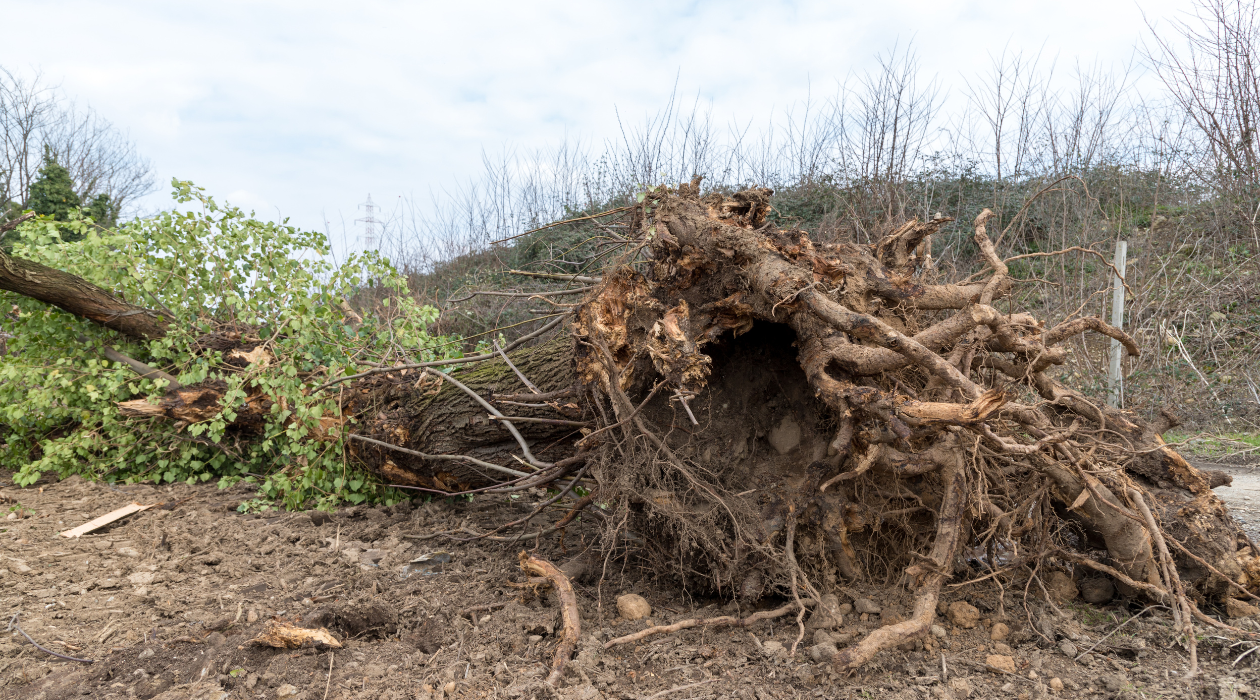Weather related losses for Vermont loggers mounting with no relief efforts in sight as second warm winter persists
Weather related losses have been mounting for Vermont loggers for months now as they grapple with severe storms and abnormally warm and wet conditions year-round, yet no relief programs currently exist to help the industry.
The Professional Logging Contractors (PLC) of the Northeast trade association is now working with Vermont legislators, officials, and state agencies including the Vermont Department of Forests, Parks & Recreation to explore options for assisting logging contractors in dealing with the unusual weather devastating their industry.
“Vermont logging contractors have been hit with a relentless series of weather challenges over the past year and a half, starting with an abnormally warm winter in 2022-2023, continuing with exceptionally wet conditions for the spring and summer last year including major flooding in July, and ending with more flooding in December that has been followed by another unusually warm and wet winter,” Dana Doran, Executive Director of the PLC, said. “These conditions have often made it difficult or impossible to harvest and haul timber, cutting productivity while driving up uncompensated costs as loggers must work harder to protect forest health and water quality.”
Damage to roads and bridges from severe flooding in Vermont like that which occurred in July and December of 2023 has had a major impact on the ability to harvest wood and move it to markets. Persistently rainy conditions have made many forested areas too wet to harvest and required time consuming and expensive efforts on the part of logging contractors to protect water quality and soils in others. The lack of deeply frozen ground in the winters is having a chilling effect on operations and profitability, and as February ended with more heavy rains and temperatures well above freezing, logging contractors appeared to be heading into an early and unproductive spring, where their equipment and employees would be idled.
In testimony provided on Jan. 5 before the Vermont Senate Agriculture Committee and the House Agriculture, Food Resiliency, and Forestry Committee, Melanie Gilman, co-owner of PLC Member Stephen Montgomery Logging Inc, of Royalton, provided a dire example of what logging contractors in the state are facing due to weather challenges, estimating the company lost 88 days of production and suffered another 60 days of reduced production in 2023 due primarily to unusually muddy conditions.
“All of this has resulted in our 2023 logging revenue being down by 30% and our trucking revenue down by
55%. This is compounded by higher fuel consumption and crippling increased costs for parts, services, fuel, employee costs and employment taxes,” Gilman said. “To keep our business going we have exhausted our reserves, had to hold off on some equipment maintenance, reduced equipment refreshes for 2023, we have used most of our personal savings and we are relying on some new short-term lines of credit. Our biggest concern is that with all this we do not have the cash reserves that we rely on to get through the normal ‘mud season’ shut down from April-May 2024.”
Vermont logging losses due to weather are well documented: A survey by the Vermont Department of Forests, Parks & Recreation of the state’s forest products industry following the July 2023 flooding found logging contractors were the most impacted business category surveyed, with total losses exceeding $2.5 million, with nearly 96% of reported losses from economic damage (business interruption) and average losses per company of more than $46,000 for the limited time period the survey examined. The PLC asked the Scott Administration to include losses for logging contractors in the Business Emergency Gap Assistance Program in July but were told that revenue loss was not being included in any of the programs. The federal delegation was also approached, but there are no federal programs for logging contractors without new legislation, therefore they could not offer any relief.
Since results of the survey were released, the PLC has met with a wide range of Vermont legislators (federal and state), state agencies, and representatives of Governor Phil Scott’s administration seeking support for relief efforts to assist the state’s timber harvesting and hauling sector. The focus is primarily on two efforts which are tied to work in the Vermont General Assembly’s House Agriculture, Food Resiliency and Forestry (HAFF) Committee: 1) Income replacement as a result of the flood in 2023 to be included in an appropriations bill and 2) H. 624, An Act Relating to Providing Financial Assistance to the Forest Economy. Both efforts will require action from the HAFF Committee before Friday, March 15th to move forward.
HAFF voted unanimously previously this session to support a relief effort, with a request for $1 million to be appropriated for a one-time (not ongoing) logging contractor relief program among the priorities they sent to House Appropriations for the supplemental budget, but it was ultimately not included. The PLC is again asking the HAFF Committee and the General Assembly to fund this relief program in the FY25 budget.
With respect to H. 624, the bill would tap into an existing Water Quality Assistance Program at the Department of Forests, Parks, and Recreation and use unencumbered fund balances from the Clean Water Fund to incentivize logging contractors to implement best management practices to enhance water quality protection measures during forest operations. Currently the cost of such efforts is borne entirely by the logging contractor. No new appropriation would be required for the program.
The second measure included in H. 624 would reinstate a small amount of funding – $45,000 – for a successful program that was created in 2019 by the Legislature with the support of the Scott Administration to provide scholarships covering 50% of the cost of Master Logger® certification for Vermont logging companies. Such certification would result in logging contractors being able to qualify as “safety certified” as defined by the Department of Financial Regulation, which would reduce their workers’ compensation insurance costs by 15%. This would provide another form of financial relief for the industry while encouraging exactly the kind of professionalism and responsible forest stewardship needed to deal effectively with the increasing demands of soil and water protection in wetter and warmer harvesting conditions.
“Protecting forest health, infrastructure, and water quality are things that benefit all citizens in Vermont, yet in many cases logging contractors are bearing the full cost of hardening log landings, installing additional culverts, repairing logging roads and bridges, and undertaking sediment control efforts,” Doran said. “We are hoping Vermont’s legislators and Governor Phil Scott will recognize this and move quickly to provide relief to the industry by reducing their costs while there is still time to help, because the effects on Vermont logging family businesses are ongoing, and losses are mounting quickly.”
Founded by loggers who were concerned about the future of the logging and forest trucking industry, the PLC has grown steadily to become a regional trade association which provides independent logging contractors and truckers in the Northeast a voice in the rapidly changing forest products industry. Board membership consists of only loggers, making it an organization that is run by loggers on behalf of loggers.
Learn more about the PLC at www.plcloggers.org


